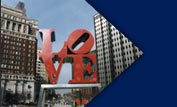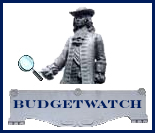- Home
- About
- News
- Tax Reform
- Ethics Reform
- Budget Reform
- Reformer’s Roundtable
- Contact Us







If You Don’t Pay Them, Taxes In Philadelphia Are No Problem
 Last week, Pennsylvania Governor and former Philadelphia Mayor Ed Rendell let out one of the city’s dirty little secrets when he told a radio interviewer that Philadelphia is not very aggressive in collecting one of its taxes. Speaking to a Pittsburgh station, the Governor tried to quell fears that a contemplated Liquor-By-The-Drink tax in Allegheny County would put Pittsburgh bars out of business. KYW Newsradio reported the exchange:
Last week, Pennsylvania Governor and former Philadelphia Mayor Ed Rendell let out one of the city’s dirty little secrets when he told a radio interviewer that Philadelphia is not very aggressive in collecting one of its taxes. Speaking to a Pittsburgh station, the Governor tried to quell fears that a contemplated Liquor-By-The-Drink tax in Allegheny County would put Pittsburgh bars out of business. KYW Newsradio reported the exchange: Rendell: “We don’t quite enforce in the neighborhood taverns as well as we do in the big hotels and restaurants.”
Host: “You look the other way, sir?”
Rendell: “Umm, you can say that.”
The Governor later tried to distance himself from the remarks, but he knows that selective or lax enforcement of tax laws is a big problem in Philadelphia. Today, Philadelphia is owed hundreds of millions of dollars in uncollected taxes that are desperately needed to fund efforts to reduce crime, improve school performance, and help us reduce our tax rates to stop the city’s long-time job exodus.
The sad statistics tell the story. Governor Rendell spoke of the tax on liquor by the drink and suggested that some establishments are forced to pay the 10 percent tax to the city while others are quietly allowed to ignore the levy. When the City Controller’s Office last examined collections, it found that the city has more than 2100 establishments subject to the tax, but less than 1500 actually filed returns. The tax currently generates about $40 million per year, but with only about two-thirds of establishments paying it, the city is clearly leaving millions of dollars uncollected.
The problem with uncollected taxes is not limited to the levy on liquor by the drink. The tax on non-business income, which is applied to income from investment dividends, royalties, and interest payments, currently generates about $22 million per year, but enforcement is lax to the point that the levy is often derided as almost optional.
But when it comes to uncollected taxes, the Real Estate Tax produces the biggest numbers. When hallwatch.org examined the issue last year, it found that delinquent taxpayers owed more than $400 million. With delinquencies that date back more than a decade, it is clear that some of that money will never be collected, but the list of the city’s biggest tax delinquents includes some very recognizable corporations and individuals who would appear to be able to pay their fair share.
When Philadelphia’s Tax Reform Commission considered its task to recommend ways to make city taxes more fair and less burdensome in a fiscally responsible manner, it addressed lax tax collections directly, saying:
“Philadelphia must do more to collect revenues from individuals and businesses that are either ignorant of their obligations or consciously choose not to pay what they owe the City. Improving enforcement and increasing the penalty for non-compliance will allow the City to finance tax reform and lower the burden faced by all Philadelphia residents and businesses.”
So if it is clear that a problem exists, and it is clear that better collections efforts would generate millions of tax dollars that always seem so scarce, why is it that the problem persists? Here is a possible answer: each of the taxes discussed — the tax on liquor by the drink, the tax on non-business income, and the tax on real estate — generates money for the schools. Collections from the taxes on liquor by the drink and non-business income go exclusively to the School District and the city only collects 40 percent of the tax on the value of real estate.
Quietly, insiders suggest that tax collections are lax for these taxes because the city does not directly benefit from enhanced enforcement and collection efforts as increased collections do not expand city revenues. Such an argument — which, of course, would never be publicly uttered on the record by a government official — is clearly unacceptable. The city should collect what is owed. Period.
At a time when government is squeezed to do more with less and maximize the impact of every single tax dollar, we must insist that everyone who owes, pays. To do anything less not only denies crucial funding to the City and School District, it perpetuates the long-held belief that in Philadelphia, the fix is in, the game is rigged, and that anyone who plays by the rules is a chump.
Happily, when asked about Governor Rendell’s remarks, a spokesman for Mayor Nutter denied there is a policy to allow neighborhood taverns to avoid the tax on liquor by the drink. Now, we need to look for actions to bring in the millions and millions of dollars that have gone uncollected. Otherwise, too many taxpayers will learn about this dirty little secret — and stop paying taxes.
